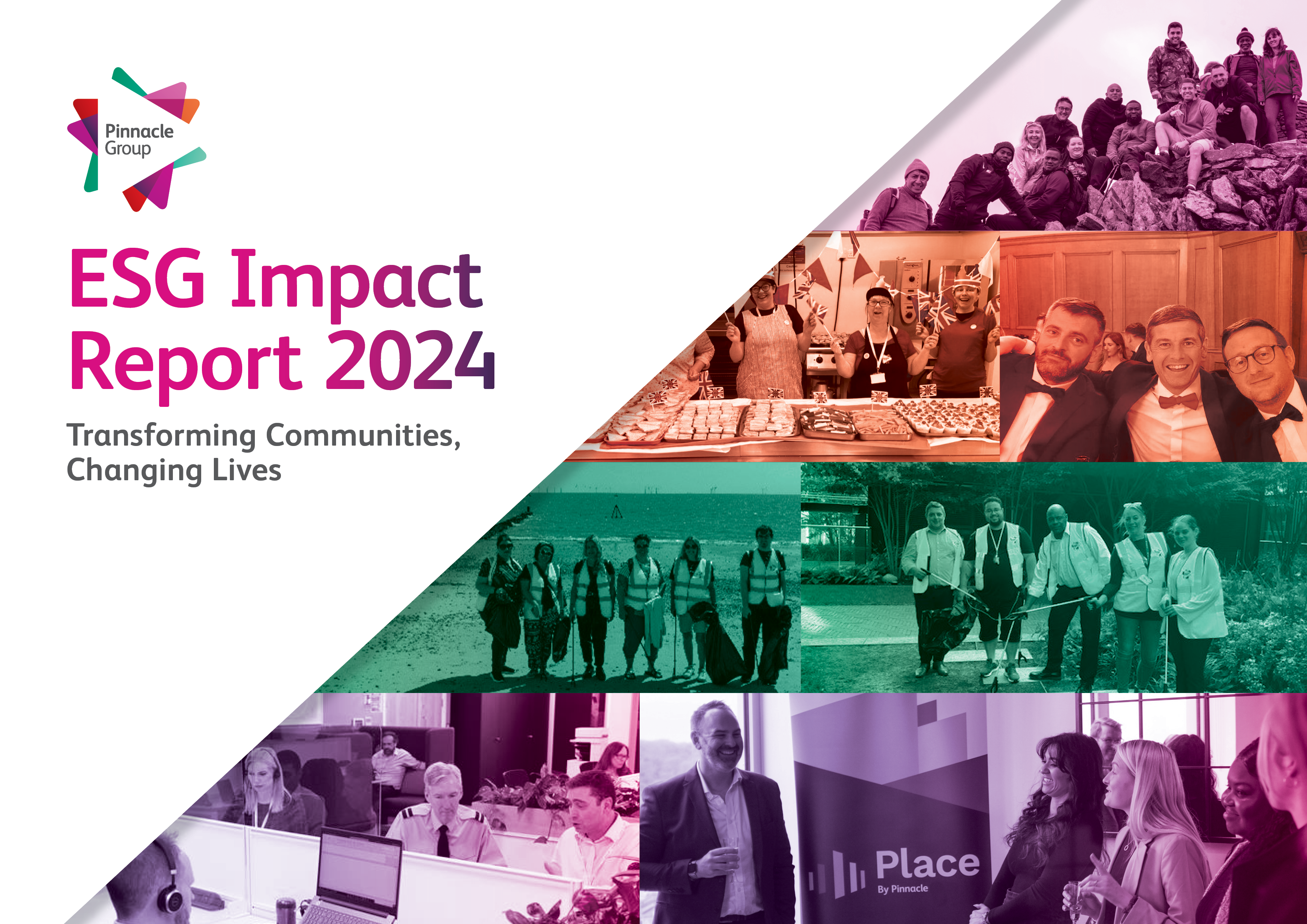Pinnacle Group marks 30-year anniversary with major contract wins and sustained growth
Pinnacle Group secured over 30 new contracts over the last financial year (April 24- March 25), marking £70 million in total contract value.
The achievement is part of a series of milestones that have seen the company expand its reach to new locations and increase its housing management portfolio by over 3,000 homes, bringing the total to over 74,000 homes nationwide.
These accomplishments came as Pinnacle celebrated its 30th anniversary, marking three decades as a provider of housing and community-facing neighbourhood services to 26,000+ delivery sites and over 230 workplaces.
https://youtu.be/r73pi5-81Tk
Pinnacle's new contracts included delivery partnerships with leading investors in affordable housing, such as Octopus-backed NewArch Homes, Pears-funded MTD Housing, and Nuveen-backed Preferred Homes Ltd.
The company also expanded its collaborations with investors such as L&G Affordable Homes, more than doubling the number of homes it manages for them, as well as securing significant housing management contracts with prominent organisations such as Manchester City Council, Birmingham City Council, and CBRE Investment Management.

The company also expanded its collaborations with investors such as L&G Affordable Homes, more than doubling the number of homes it manages for them, as well as securing significant housing management contracts with prominent organisations such as Manchester City Council, Birmingham City Council, and CBRE Investment Management.
Additionally, Pinnacle entered into a landmark 50-year contract with infrastructure giant HOCHTIEF to operate over 1,000 student rooms in partnership with Staffordshire University. Pinnacle also expanded its workplace operations for multinational manufacturer JCB and won new contracts worth over £2 million annually with Notting Hill Genesis to provide cleaning, caretaking, window cleaning, and waste services across five London boroughs.
A major highlight of the year was Pinnacle's new partnership with the Hyde Group. Hyde’s strategic investment in Pinnacle marked a transformative moment for both organisations, enabling them to amplify their impact across the housing and neighbourhood sectors.
Over the last year, Pinnacle's flagship Meadowship scheme, a partnership with Bromley Council, has successfully supported 127 homeless households into permanent homes, contributing to the alleviation of the ongoing temporary housing crisis. Since its inception, the scheme has helped nearly 400 homeless families find permanent housing.
As well as supporting local government, Pinnacle continues to be a trusted partner of the HM Government, last year supporting over 12,000 armed forces families as they move into MOD accommodation through its multi-million-pound contract with the Defence Infrastructure Organisation. The company has also played a crucial role in the Afghan Relocation and Assistance Policy, successfully assisting 170 Afghan families in transitioning to surplus MOD accommodation.
In addition to these achievements, Pinnacle has handled over 1 million customer calls across its 24/7 contact centres, significantly boosted its market rent and student accommodation portfolios, and achieved market-leading customer satisfaction scores.
"This past year has been remarkable for us. Our strategic partnership with Hyde Group, coupled with securing numerous high-value contracts, has positioned us to innovate more effectively and deliver high-quality, well-managed homes and communities nationwide. I am immensely proud of the profound impact our teams have had on communities across the UK and look forward to our continued expansion and success."

Perry Lloyd
Group Chief Executive
Claire Kober: It’s time to lift the social housing stigma
For those following the passage of the assisted dying bill through parliament, there may not be any immediate parallels with the housing world.
However, whatever your views on the bill, a recurring concern is being played out in the debate. Despite the apparent safeguards in place, there persists a worry that vulnerable people may be coerced into ending their lives simply because they no longer wish to be a burden – to their families, their friends or the state.
This concept of ‘being a burden’ is deeply troubling and is evident across several sectors, including healthcare, mental health and housing. But why do people consider themselves a burden in the first place, and how does this problem play out in the housing sector?
In January, the G15 – a collective of London’s largest housing associations – published a report entitled ‘Taking the stigma out of social housing: the residents’ view’. Nearly half (45%) of social housing residents surveyed report experiencing prejudice or discrimination due to their housing status, while 43% say they have felt stigmatised when interacting with their landlord. With statistics like this, it is no wonder people begin to feel like a burden.
"It is not just about perceptions, but also about the impact this prejudice has on people’s lives."
The report delves into how stigma is formed and perpetuated, with residents highlighting the impact of politicians’ words, media depictions of social housing and social media narratives. Residents say they feel social housing tenants are portrayed as a burden to the taxpayer when, in reality, over half are in work.
The stakes are high. It is not just about perceptions, but also about the impact this prejudice has on people’s lives. It is five years since two-year-old Awaab Ishak died in Rochdale due to exposure to mould that was not addressed by his landlord. The Housing Ombudsman’s report highlighted a pattern of “othering” residents, attributing issues such as damp and mould to “cultural practices” and “lifestyle choices”, rather than addressing the underlying causes in the building.
The housing association involved, Rochdale Boroughwide Housing, has since undergone a complete change of leadership, and update reports show significant progress. At a conference in January, its new director of communications spoke about the need for teams to properly represent the communities they serve.
Need for decisive leadership
We also need to consider the current state of play. The government aims to bring forward 1.5 million homes by 2030, but in our pursuit of higher housing volumes, we must not overlook the need for decisive and capable leadership to drive attitudinal change.
Comments suggesting social housing residents ‘should be grateful’, are ‘entitled’ or have caused issues themselves are still common. Language matters and, in line with the Rochdale recommendations, we must root out these attitudes and provide clear information to residents.

The affordable housing sector is at an inflection point, with more for-profit registered providers coming on board each month. These landlords reported owning over 38,500 homes in 2024, up 30% on the previous year. As well as securing stable, long-term returns, investors are looking to deliver positive social impact along with new solutions to intractable problems such as the number of people in temporary accommodation.
We are seeing new ways to create homes that challenge outdated perceptions of social housing and bring new players to the table, who also have a responsibility to challenge these depictions. For-profit registered providers, along with others in the housing sector, have an opportunity to shift perceptions by promoting a positive narrative on social housing; showcasing an accurate representation of social homes and the people who live in them.
This includes highlighting some of the excellent new homes being created. Regular registered providers, for-profit companies, housing organisations such as my own and the broader sector must work together to shift perceptions, which will bring substantial benefits to communities.
We must create an environment where all residents feel valued and respected, ensuring that social housing is seen as a vital, positive force in our communities.

Claire Kober
Managing Director (Homes), Pinnacle Group
This article was originally featured in Property Week, on 19th February 2025.
The Pinnacles 2024
https://youtu.be/iRIc9pm5S4M
On 10th December, The Pinnacles, our annual staff awards ceremony, took place at the Victory Services Club in London, celebrating the exceptional achievements of our teams.
The event brought together over 150 Pinnacle colleagues to recognise and honour the dedication, talent, and hard work of colleagues across the organisation throughout 2024.
On the night, a total of 37 finalists were celebrated from across all areas of the business in seven different award categories, designed to champion both teams and individuals. The finalists were selected from over 340 nominations made by colleagues, who were encouraged to submit those who uphold Pinnacle’s values of trust, respect, involve, challenge and deliver excellence.
Hosted by Luke Smith, PSF Client Director, the evening featured addresses from Christopher Hodson, CFO; Perry Lloyd, CEO; and Andy Hulme CEO of the Hyde Group, with each award being presented by members of Pinnacle's Executive Committee.
Peregrine Lloyd, Chief Executive of Pinnacle Group, said: “The Pinnacles highlight our gratitude for colleagues who truly embody the essence of being a Pinnacle employee. This year, it was a pleasure to honor such inspiring accomplishments and acknowledge those who have made a positive difference in the communities we serve.”
Congratulations to all of this year's finalists and winners!
Employee of the Year
Janet Adams - Repairs Team Leader, Pinnacle Service Families (PSF)
One of the most highly anticipated awards of the evening is the Employee of the Year award. Each of our finalists is truly an asset to Pinnacle and we were thrilled to name Pinnacle Service Families, Repairs Team Leader Janet Adams as the winner.
From our PSF team, Jan is the heart of the National Service Centre. Her dedication, empathy, and resilience shine through in her work supporting clients, organising events, and fostering a welcoming environment. She embodies the spirit of Pinnacle, making a difference for colleagues and clients alike.
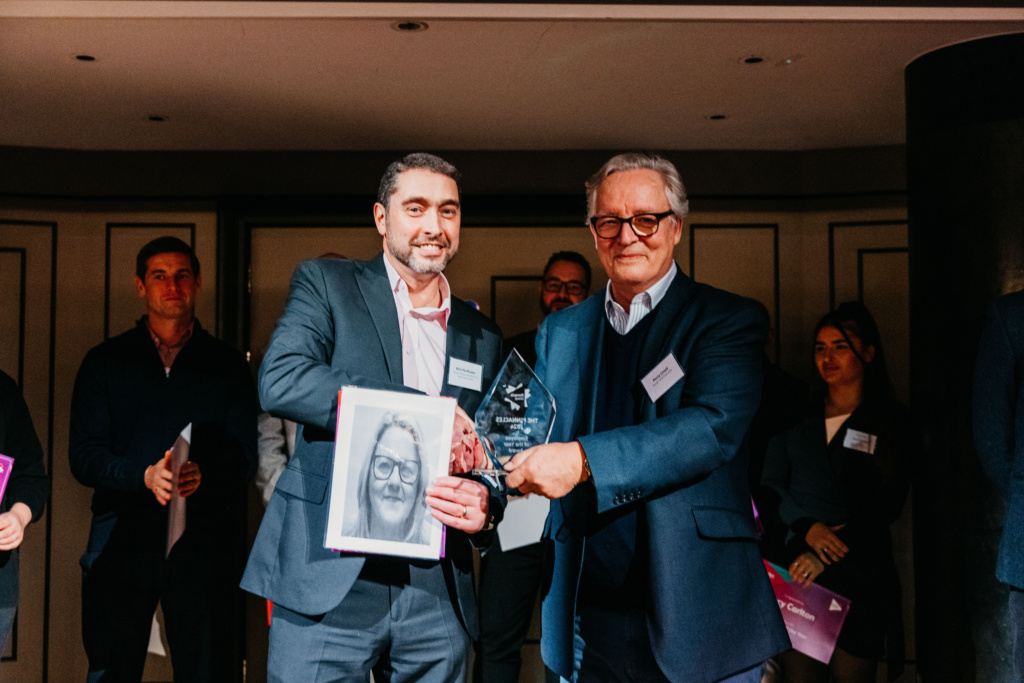
Congratulations to Janet and our other Employee of the Year finalists:
- Leon Simpson, Quality Manager, Projects & Governance
- Lucy Carlton, Property Manager, Place by Pinnacle
- Ryan McKeown - Housing Services Manager, PSF Administrator
- Lewis Spiers, Specialist Cleaning Operative, Soft FM
- Johnny Dankwa, Team Leader, Soft FM
- Cloe Allsop, Account Manager, B2B
- Andrew Atkinson, Industrial Supervisor, B2B
- Abraham Gibson, Facilities Assistant, Total FM
- Igor Kubiak, Facilities Assistant, Total FM
Team of the Year
Kenton and Tony - Soft FM Divsion
Kenton and Tony ensure Clapham Park Homes Estate maintains exemplary standards. Their attention to detail, tireless efforts, and impact on this flagship site exemplify Pinnacle’s values.
Congratulations to Kenton and Tony, and our other Team of the Year finalists:
- Technology & Innovation Development Team, Central
- Leicester Team, Homes
- Terry & Ricky, Soft FM
- David Brown Santaslo Team, B2B
- Ebbsfleet Academy, Total FM
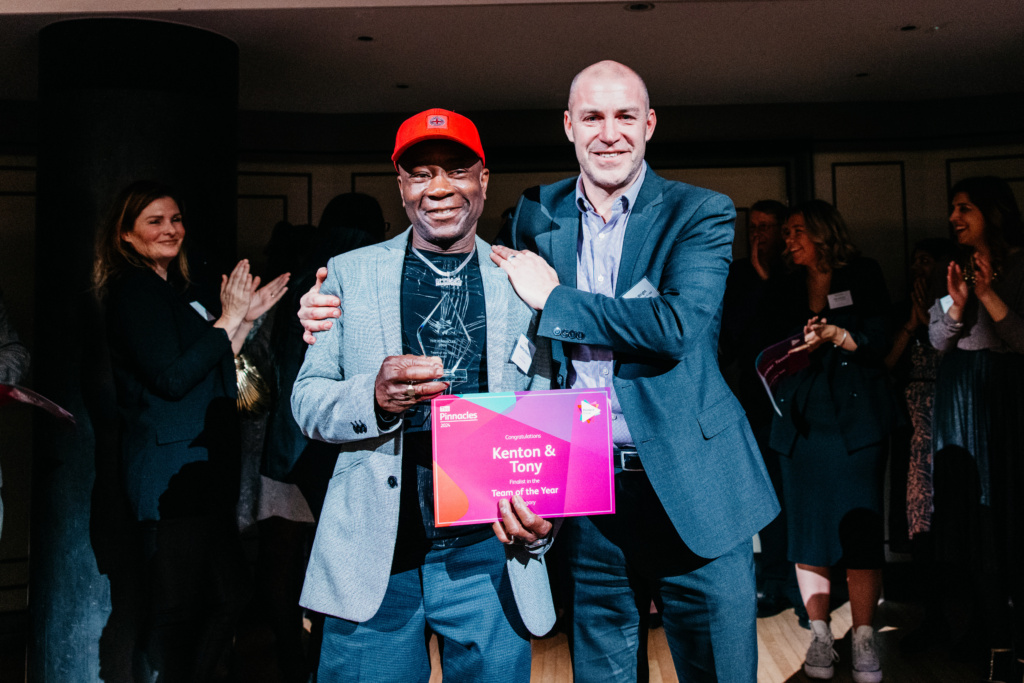
Manager of the Year
Swarna Ragu - Team Leader
Swarna from our Brockley team, has served Pinnacle for 16 years and exemplifies resilience and leadership. Her ability to step up in critical moments and earn the trust of clients and colleagues is extraordinary.
Congratulations to Swarna and our other Manager of the Year finalists:
- Helen Barnes, Regional Customer Service Delivery Manager, PSF
- James Harrison, Contract Manager, Soft FM
- Diogo Florencio, Contract Manager, Soft FM
- Graham Callis, Contract Manager, Total FM
- Kate Mosey, Contract Manager, Total FM
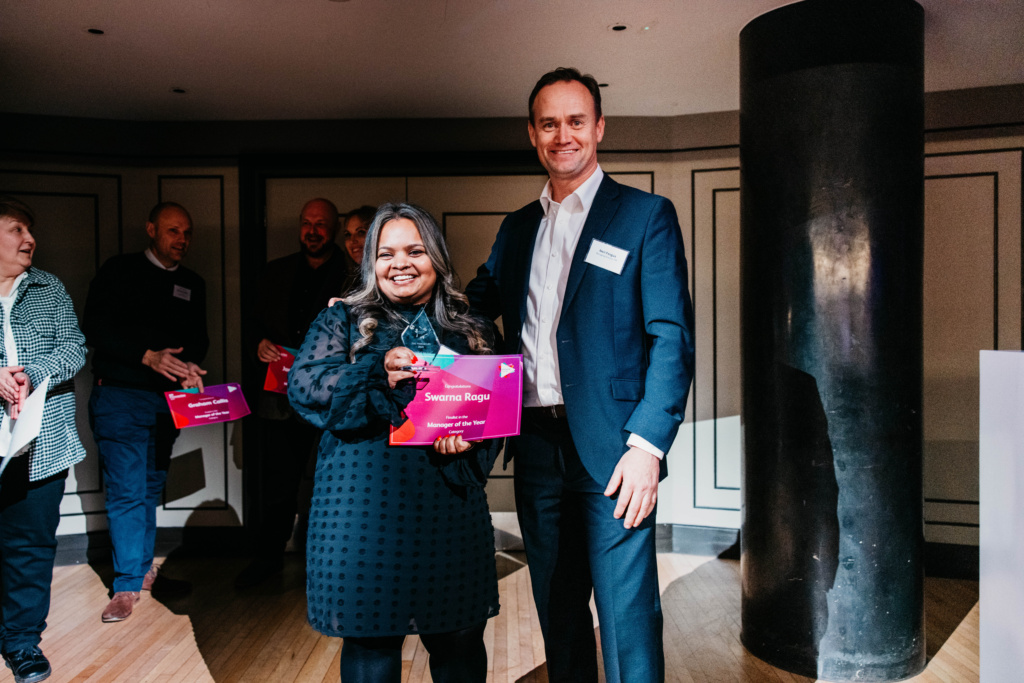
Extra Mile Award
Jayne Rumble - Housing Officer, Pinnacle Service Families
The Extra Mile Award is for the best examples of one-off actions going well beyond the call of duty.
Jayne, from our Pinnacle Service Families team, showed extraordinary bravery when she responded to a fire at a military housing estate. Her swift actions in raising the alarm and evacuating neighbours prevented a potential tragedy.
Congratulations to Jayne and our other Extra Mile Award finalists:
- Gary Smith, Total FM
- Tina Smith, PSF
- Barry Holben, PSF
- Paul Mitchell, Homes, Brockley
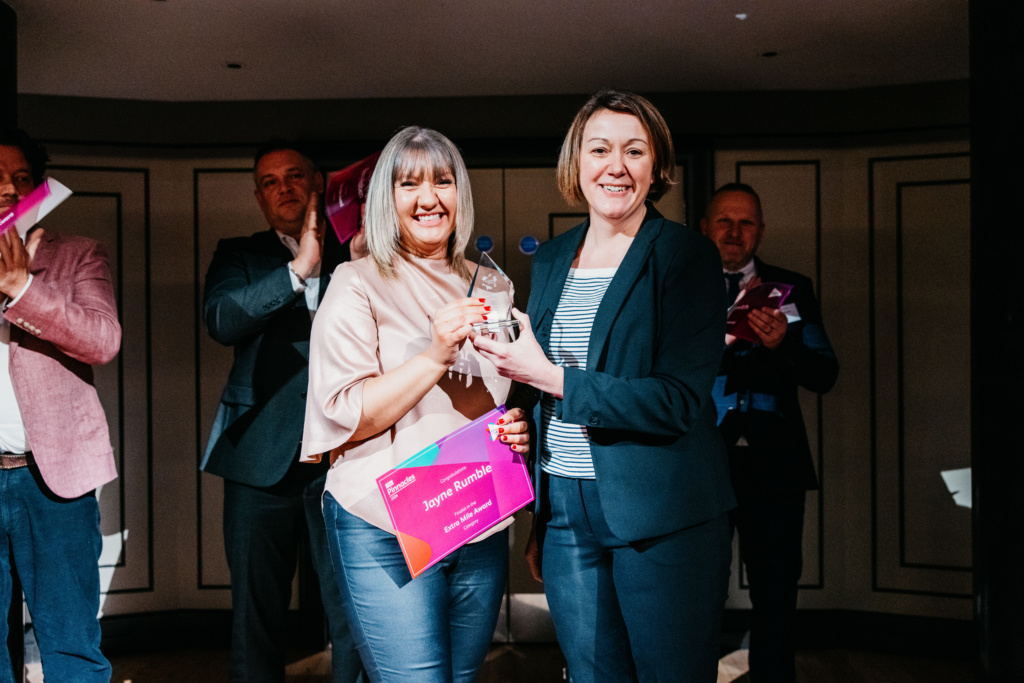
Community Impact Award
Julie Impey - Community Manager
The Protect Our Planet Award is for the demonstration of outstanding positive contributions to our communities.
Julie has been with Pinnacle for 12 years and manages a Temporary Accommodation building for homeless individuals in the West End. Her compassion, resourcefulness, and unwavering support for residents have transformed lives and created a safe, welcoming environment.
Congratulations to Julie and our other Community Impact Award finalists:
- North Region South Housing Team, PSF
- Pinnacle North Multi-Contract Team
- Lewis Saunders, Soft FM
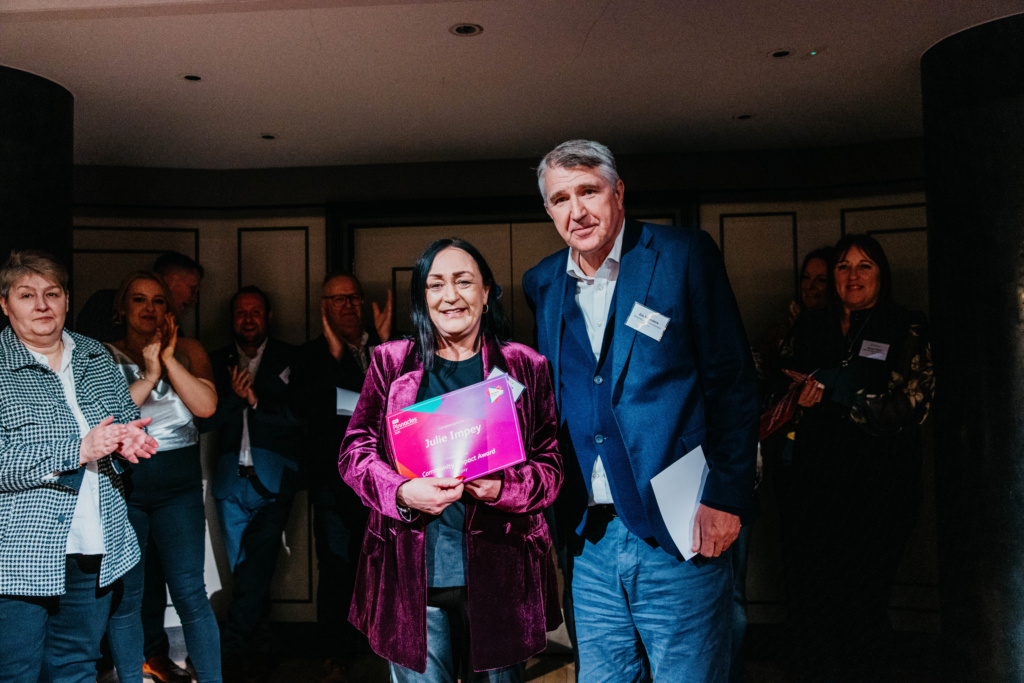
Protect Our Planet Award
Andra Stoicanescu - Contract Manager
The Protect Our Planet Award is for the demonstration of outstanding contributions to the environment.
Andra is a Contract Manager for Housing PFI Estate Services. She has championed biodiversity and community projects, from wildflower planting and bug hotels to supporting resident-led initiatives like community gardens. Her work benefits people and the environment.
Congratulations to Andra and our other Protect Our Planet Award finalists:
- Leeds & Kirklees Schools Team, Total FM
- John Gambrill, Total FM

The Innovation/Service Improvement of the Year Award
Ikram-Ul Haq - Regional Finance, Co-ordinator, Total FM
This award is for the demonstration of the best examples of innovation/service improvements in the year.
Ikram, Regional Finance Coordinator for Total FM South East, developed a Power BI dashboard revolutionising financial management. His dedication to smarter working has enhanced processes and improved service across contracts.
Congratulations to Ikram and our other Innovation/Service Improvement of the Year Award finalists:
- Sajan Raja, Data Analytics
- Kathryn McBurnie, PSF
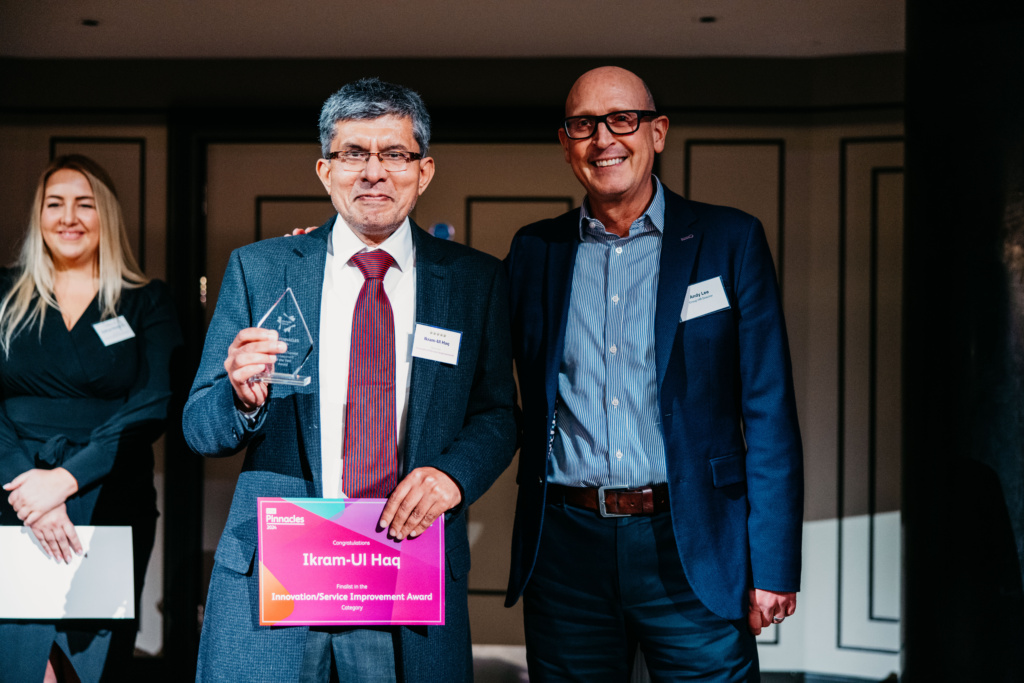
ESG Impact Report 2024
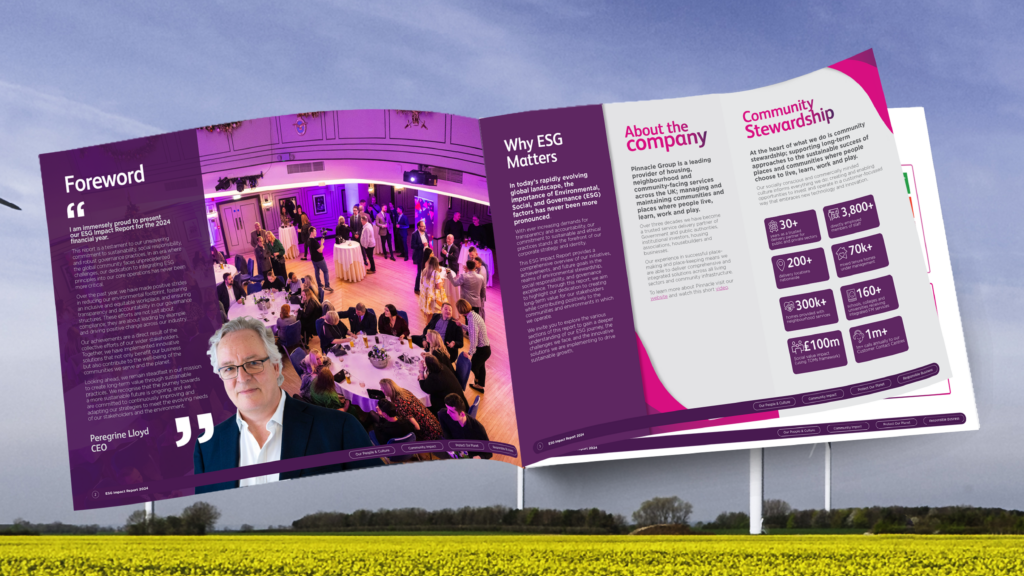
Our latest report detailing a series of key ESG pledge successes has today been published, highlighting our progress across the four key pillars of our ESG Framework.
Today we're delighted to publish our latest ESG Impact Report highlighting the exceptional service and positive difference we make to every community we serve.
This report not only celebrates our achievements but acts as a marker on our journey to net zero. This represents a substantial challenge but is one we welcome, and are making significant strides towards.
We've continued to make good progress in reducing our total emissions in FY24 compared to FY23, by reducing our total carbon footprint per £1m of revenue by 8% to 78.77 tCO2e.
Pinnacle continues to be a socially conscious and value-led business, this is demonstrated through the exceptional achievements of our people in protecting our planet, the social investments in our team and culture, and the communities we serve.
Pinnacle to manage over 500 extra care apartments for Nuveen-backed Preferred Homes Limited (PHL)
Preferred Homes Limited (PHL), a registered provider backed by Nuveen Real Estate, has appointed Pinnacle Group (Pinnacle) to manage over 500 extra care apartments across an initial eight UK locations.
PHL creates 100 per cent affordable extra care housing for rent, providing local authorities with a pipeline of accommodation for older people who have care needs.
The instruction marks another new relationship for Pinnacle, which also recently celebrated winning housing management contracts with Funding Affordable Homes, as well as expanding its work with Legal & General Affordable Homes.

Pinnacle will provide a full management service for PHL, ranging from lettings and rent collection to maintenance administration and repairs. Alongside this, the company will undertake caretaking, cleaning and grounds maintenance.
With finance secured by PHL from Nuveen’s Impact Fund, Pinnacle will also capture positive impacts made on residents’ lives through intervention, social activities and programmes.
“We have extensive experience in delivering housing services to older people and are delighted that our track record has secured yet another instruction.
“By combining our people, place and property services into one integrated delivery model, we know we’ll create contented communities where older people can thrive.”
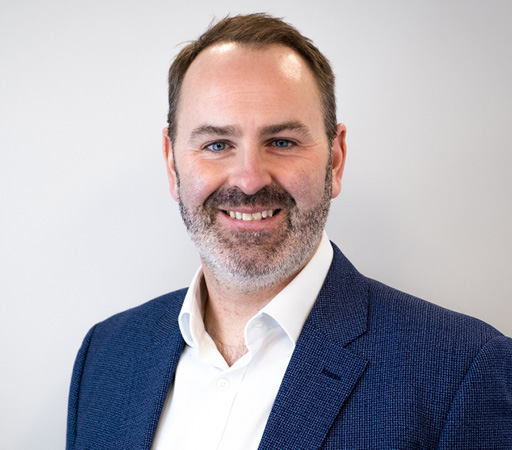
Oliver Miller
Director of Rental, Pinnacle Group
Alongside property management, Pinnacle will also bring its dedicated app, Ark, that allows residents to interact via their smartphone whenever they wish – be that asking questions and requesting repairs or staying up-to-date with the latest social events and offers.
"With PHL moving from concept to delivery and operation across our sites, we knew we needed an experienced management partner that will take a resident-focused approach and ensure facilities are in great condition. We’re confident that Pinnacle will provide exactly that.
“Working alongside local authority partners and Homes England, we are ready to rapidly grow our pipeline across the country, tackle the housing crisis and provide high-quality care which supports people to live well. We’re looking forward to working with Pinnacle as our first site opens later this year and building our relationship in the years to come.”

Findlay MacAlpine
Chief Executive Officer at Preferred Homes Limited
Extra care housing promotes independent living along with care support available on site, allowing for more effective and cost efficient provision. The public purse savings for a typical PHL development is around £800,000 per annum, equivalent to £20 million over a local authority nominations period of 25 years.
Pinnacle will take on the first of the schemes, in Leeds, from November. This comprises 51 one-bedroom apartments and 12 two-bedroom apartments.
Seven further communities, set to begin construction in the coming weeks and months, will follow in Telford, Nottingham, Bicester, Shrewsbury, West Sussex and Kent.
Claire Kober: Housing battles loom for Labour
For those who have been watching Welcome to Wrexham, Ryan Reynolds’ documentary series on the town’s football club, the frequent references to the British planning system might come as a surprise. The series follows Reynolds and his business partner, producer Rob McElhenney, as they navigate the complexities of owning a football club and engaging with the local community.
Their journey is heartwarming, showcasing their growing and seemingly genuine affection for Wrexham and its people. However, the obstacles they face are striking. When they attempt to redevelop the stadium, they encounter what Reynolds calls a “thick buttress of bureaucracy” within the planning system. McElhenney describes it as presenting “hurdles for hurdles’ sake”.
While their comedic frustration provides laughs, it underscores a serious issue. Reynolds and McElhenney, international investors with a combined net worth of over £400m, want to invest and bring about social good. Yet, the planning system risks thwarting their efforts.
Unlike Reynolds and McElhenney, institutional investors – recognising the increasing importance of ESG factors – must also focus on returns in the social housing sphere and cannot afford prolonged delays.
To attract private capital into the sector, among other things, we need a simplified planning process. The new government has rightly made this a priority, aiming to reduce bureaucratic hurdles and speed up planning decisions.
The urgency is clear. Council spending on hotels for homeless households has tripled in the past five years, soaring from £81m to £241m.
In London, authorities collectively overspent on their homelessness budgets by £208m last year, with spending on temporary accommodation rising by 25% from April 2023 to April 2024 alone. Newham Council has repeatedly sounded the alarm over spiralling costs, allocating a further £18.5m to its temporary accommodation budget this year, but predicting costs will top £40m. The authority says the issue could soon account for a third of its total budget.
Housing is clearly a key issue for the new government, but significant hurdles remain. Nimbyism and development protests, especially with plans to reclassify some green-belt land as ‘grey belt’, are growing concerns. Politicians will face pressure from constituents to preserve these areas.
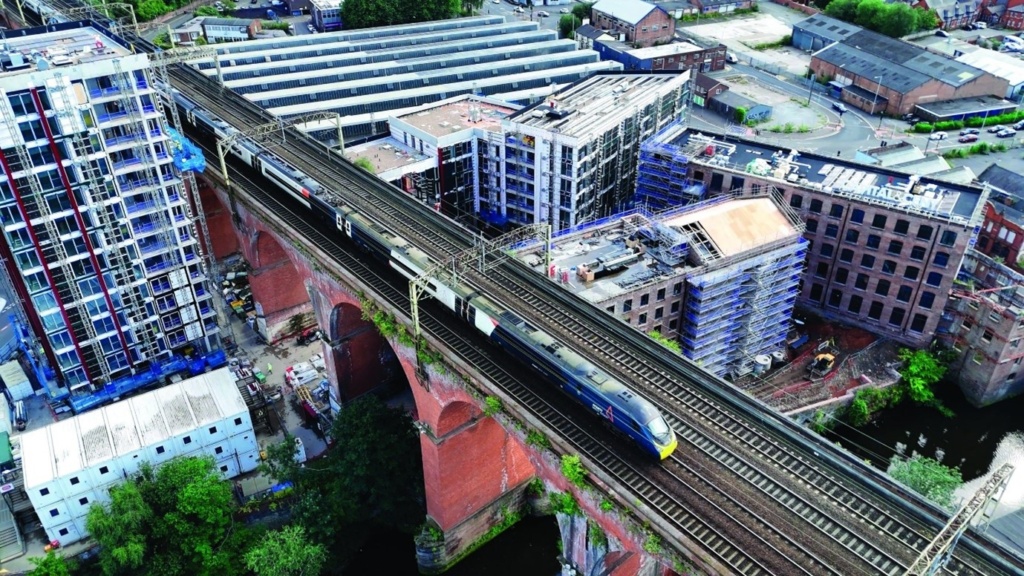
While 11 out of 12 metro mayors in England are Labour, the new administration shouldn’t underestimate the impact of local pressures. Take Stockport. The Financial Times’ northern correspondent recently noted that, despite the area’s proximity to Manchester and the benefits it reaps, the town and council – an authority of no overall control – have a complicated relationship with housebuilding.
Having dropped out of the Greater Manchester Spatial Framework over green-belt concerns – despite the combined authority’s revisions to focus on brownfield – its recently published draft local plan would meet only 85% of its housing need. This proposal is unlikely to satisfy, given the strident rhetoric from Westminster.
Similarly, at Salford Quays, one of the UK’s most successful regeneration projects, a resident Liberal Democrat councillor recently raised concerns about overdevelopment. While his points – made to the Local Democracy Reporting Service – about the need for supporting infrastructure and services are valid, his focus on the potential loss of character for the area seems somewhat misplaced. The challenge of balancing much-needed development with maintaining the area’s unique identity is significant, but not insurmountable.
Clearly, political and community battles loom, alongside the complex task of unpicking planning law. To address the housing crisis, a collaborative approach is essential. Investors, government, developers, councils and regional politicians must work together. The government needs to hold its nerve, while local administrations of all colours must be realistic about the necessary actions, showing strong leadership in the face of community sentiment.
With more than 150,000 children in temporary housing in the UK, the urgency for more affordable housing is undeniable. We can no longer afford to delay.

Claire Kober
Managing Director (Homes), Pinnacle Group
This article was originally featured in Property Week, on 5th September 2024.
Pinnacle Group Expands Affordable Housing Portfolio with 250 New Homes
Pinnacle is set to offer more affordable accommodation across the country after boosting its portfolio by 250 homes, funded by CBRE Investment Management.
The homes – developed by national housebuilder, Persimmon – will fall under Pinnacle Spaces, one of the company’s two Registered Providers, who will act as landlord, with the wider Pinnacle Group providing management services.
Registered in 2012, Pinnacle Spaces aims to increase the supply of high-quality, well-managed affordable housing across England and Wales.
It achieves this through a unique combination of access to large-scale funding through partnerships with institutional investors, alongside effective utilisation of Pinnacle Group’s tried and tested operating platform.
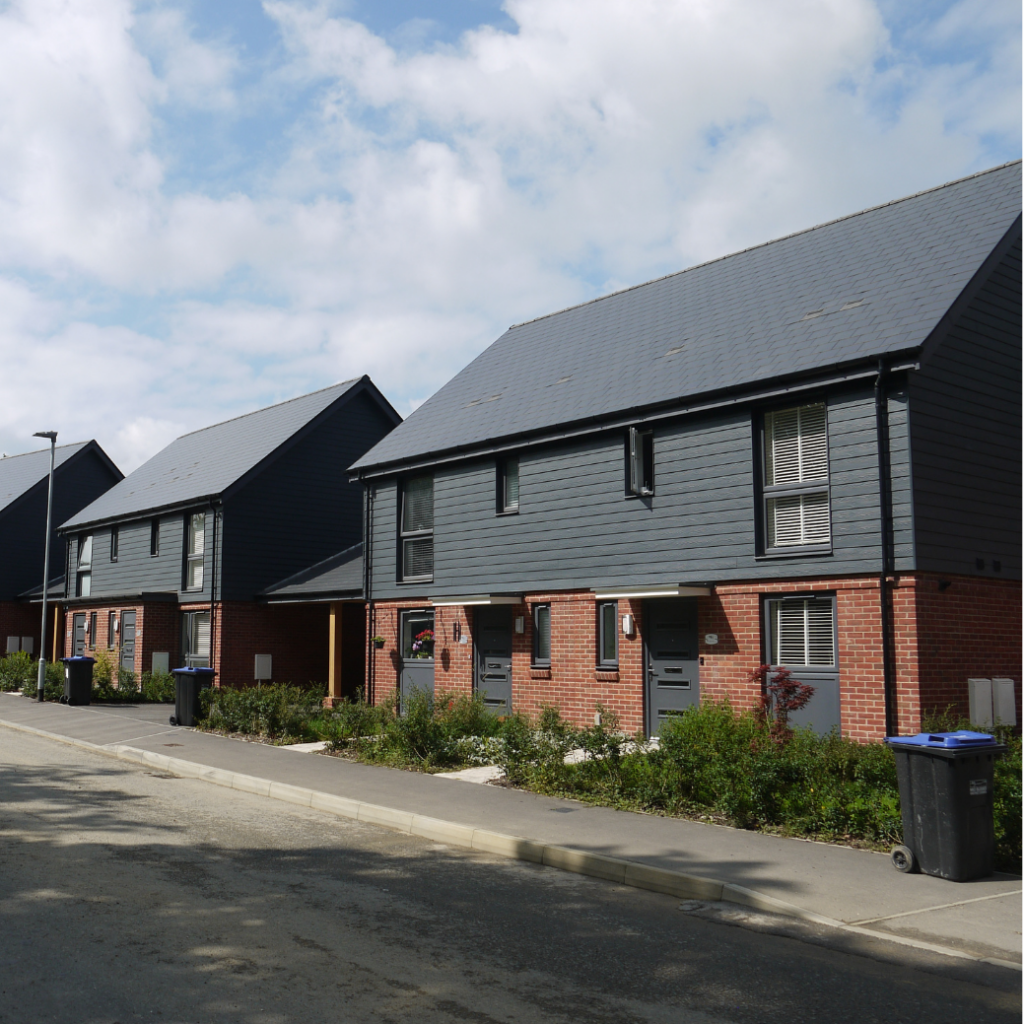
Over the coming months, the new homes will be available to local people in Burgess Hill, Mid Sussex; Weston, Spalding; Wantage, Oxfordshire; and Exning, Newmarket.
“We have a strong track record of not only delivering high-quality, well-managed homes but offering a trusted platform for investors to generate positive social outcomes alongside achieving stable financial returns. We are thrilled to integrate these properties into our portfolio to provide new affordable housing for families across the country and foster communities that people are proud to call home.”

Claire Kober
Managing Director - Homes for Pinnacle Group
“We are immensely proud to announce this partnership with Pinnacle Spaces and Persimmon in which CBRE Investment Management purchased a mixture of affordable and shared ownership units. This project is another step toward our commitment to helping solve the affordable housing crisis in the U.K. Through our institutional capital, we can start to bridge the gap between the current mismatch between the demand and supply of quality affordable housing whilst meeting investor returns.”

Andrew Davey
Head of Liability-Aware Strategies and Affordable Housing for CBRE Investment Management
The homes – a mix of social rent and shared ownership – will be offered to those on social housing waiting lists, providing them with quality accommodation while reducing pressure on local authorities.
The additions will increase Pinnacle Spaces portfolio to around 500 homes, with an upcoming pipeline expecting to swell numbers to over 1000 in the coming months.
This expansion underscores Pinnacle Group’s commitment to addressing the housing crisis and supporting communities by providing sustainable and affordable housing solutions.
Pinnacle Group’s Claire Kober on why for-profits are key for housing supply
Earlier this month, the Financial Times reported a stark warning from housing associations: “We can’t build houses.” Some said they had ceased all new development for the coming financial year; others said the system was “maxed out”.
A perfect storm of high interest rates, inflation, low government grants and rising construction costs, as well as net zero and remediation obligations, means traditional registered providers (RPs) are struggling to build. Put simply, the finances do not stack up. In fact, housing associations say building new affordable homes is becoming financially impossible, which is worsening the downturn in supply.
Alongside this, demand continues to grow. In 2022, there were 1.2 million households on social housing waiting lists. Statistics released last month show this has increased by 6% to 1.29 million. In 2021-22 alone, 173,550 households who received a social letting were new to the social sector. Meanwhile, households in temporary accommodation now number more than 109,000, with costs exceeding £1.74bn in 2022-23. Something has got to give.
What the FT piece neglected to mention was that for-profit RPs (FPRPs) are moving into the space and helping to bridge the gap. There are 69 FPRPs registered with the Regulator of Social Housing – two of these owned by Pinnacle. With this number continuing to rise, albeit at a slower pace, it is clear institutional investment’s role in the sector is vital and will continue to grow. There is a real opportunity for traditional RPs to support this growth.
In 2023, I was part of a working group, drawn from the British Property Federation’s (BPF’s) Affordable Housing Committee, that developed a toolkit to provide greater understanding of partnership models for investors and RPs. Its aim was to boost the delivery of affordable homes by providing greater understanding of how investors and housing associations can collaborate.
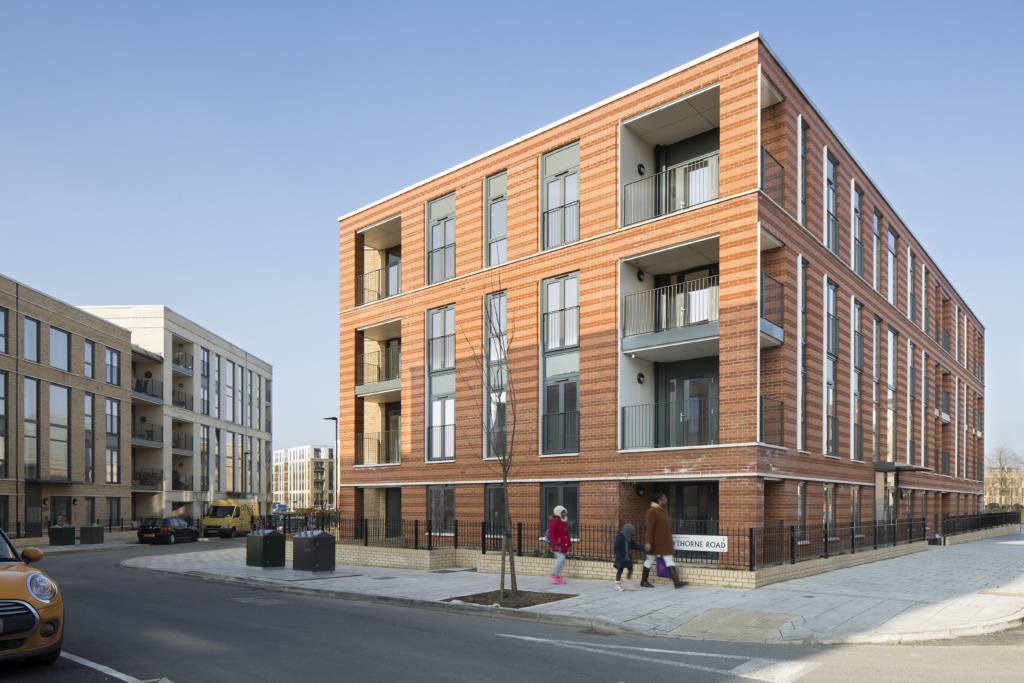
Encouragingly, a recent Savills survey of traditional housing associations revealed that 89% would consider a partnership with a for-profit and 43% are already working with them in some way. The ever-growing pressure on housing associations to find alternative sources of investment is shifting attitudes among traditional RPs. Five years ago, an earlier survey found that only 62% of traditional housing associations thought that for-profits had any part to play in solving the housing crisis.
It is clear there is a rapidly growing recognition of the role equity has to play in unlocking financial capacity. This collaboration is set to be key in the sector’s future growth.
Capital funding
Rapidly scaling up long-term institutional investment in the sector is vital to boosting affordable housing supply. Analysis by L&G and the BPF reveals that £34bn is the additional capital funding needed per year to meet demand.
But if we are to scale up, we must create the conditions to encourage private capital to enter the sector. These include longer-term rent settlements, a review into subsidy provision and the creation of a level playing field between traditional RPs and their for-profit counterparts. New tax and grant initiatives would remove obstacles for closer collaboration between institutional investors and RPs.
As the gulf between supply and demand broadens, the housing crisis is set to take centre stage in the upcoming general election. It is already shaping up to be a key battleground, with the industry and communities patiently waiting to hear how parties intend to address the issue should they retain or take power. Whichever party wins, they need to adopt a pragmatic approach, acknowledging the role institutional investment has to play in delivering the affordable homes the country needs.

Claire Kober
Managing Director (Homes), Pinnacle Group
This article was originally featured in Property Week, on 1st May 2024.
ESG Impact Report 2023
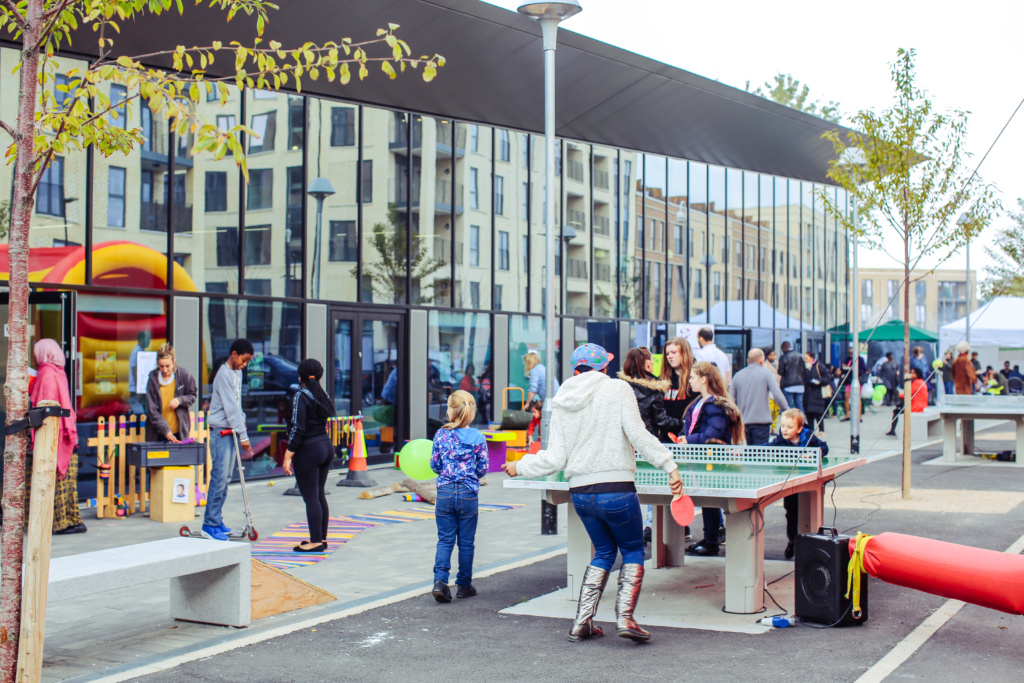
Our latest report detailing a series of key ESG pledge successes has today been published, highlighting our progress across the four key pillars of our ESG Framework.
Today we're pleased to publish our latest ESG impact report highlighting the exceptional service and positive difference we make to every community we serve.
This report not only celebrates our achievements but acts as a marker on our journey to net zero. This represents a substantial challenge but is one we welcome, and are making significant strides towards.
Over the course of 2022-2023, we are pleased to announce that our total emissions per £1m revenue has reduced by 8.7% year-on-year to 85.48tCO2e.
Pinnacle continues to be a socially conscious and value-led business, this is demonstrated through the exceptional achievements of our people in protecting our planet, the social investments in our team and culture, and the communities we serve.
Combat Stress becomes Pinnacle Service Families’ charity partner
Pinnacle Service Families (PSF), part of Pinnacle Group, have chosen veterans’ mental health charity, Combat Stress, as their charity partner and will now embark on 12 months of awareness-raising and fundraising activities in aid of former service personnel with complex mental health issues.
Over the course of the next year, PSF is aiming to raise both awareness and vital funds to help support veterans on their road to recovery, as well as linking in with Combat Stress’ work to help veterans access its programme of career and self-employment coaching.
PSF is contracted with the Ministry of Defence to provide administration services for 49,000 service family homes, putting military families at the heart of what they do. With many of their own staff connected to the Armed Forces – either as partners, veterans or reservists – they understand the challenges individuals and families face. Some of the PSF team have themselves benefitted from Combat Stress’ support as they’ve battled mental health issues transitioning to civilian life.

As part of their broader work to support ex-service personnel, PSF provides a career and self-employment coaching programme, with tailored one-to-one mentoring sessions for ex-personnel, spouses, partners and their families.
Perry Lloyd, Pinnacle Group Chief Executive, whose brother had a long career in the Army and retired as a Colonel, said: “Having close family in the Armed Forces has given me a level of insight into the lifestyle and pressure families are under. Personnel put their lives on the line for us, so it’s right that we do whatever we can to provide the best service. I’m proud that we have a dedicated team who share my ambition to not only fulfil the obligations of the contract, but to go over and above in all that they do to support service families.
“It’s easy to write a cheque but – through a lasting collaboration with Combat Stress – we really want to support families more broadly to tackle the issues they face.”
Garry Burns, Senior Head of Corporate Partnerships and Events at Combat Stress, said: “On behalf of Combat Stress and the veterans we treat, I would like to thank Pinnacle Service Families for choosing us as their charity of the year.
“As the UK’s leading charity for veterans’ mental health, we provide specialist clinical treatment and support to veterans with complex mental health issues arising from military service. The support of staff at Pinnacle Service Families in raising money for, and awareness of, our charity will ensure we can help more veterans across the UK to rebuild their lives.”
Pinnacle Group’s Claire Kober on why BTR deserves more attention from Whitehall
The housing landscape is undergoing a rapid shift, and if the prime minister wants to stand any chance of meeting his housing target, much more attention must be paid to alternative development models, including build to rent (BTR).

For many, traditional home ownership is either completely out of reach or something for much later in life. In 1960, the average first-time buyer could have expected to unlock the door to their first home at 23 years old. Now, market analysis shows that they will be stepping on to the property ladder in their mid-30s.
Societal shifts, the cost-of-living crisis, rocketing house prices, rising mortgage rates and a lack of suitable accommodation mean people are spending longer in the rental market, which is pushing up demand. Coupled with an increasing awareness of renters’ rights and a post-Covid-19 emphasis on the quality of accommodation rather than simply location, renters are no longer happy spending their days in substandard properties.
When the wait to get on to the housing ladder is likely a long one, the quality of a rental home takes on new significance; it’s not just a place to lay your head.
This is where BTR comes in. Research from Savills has found that investment activity in the sector grew to a record high of £1.26bn in the second quarter of this year. The sector is seeing significant growth and backing. And the government should take note.
Offering flexibility and quality services, BTR presents a tangible alternative to the conventional approach. To make it work at scale, BTR models need to be refined to provide investors with more certainty, while delivering homes that genuinely resonate with residents’ needs, budgets and aspirations.
The sheer demand is evident. This year, our average occupancy rates soared to 98%. We’ve witnessed a staggering growth from managing approximately 300 units in 2021 to nearly 1,000 in 2023.
Incorporating digital tools is instrumental to achieving positive results. Today more than 60% of residents are engaging apps as their preferred means of communicating with their property manager. From both a management and investment perspective, this contributes to the insight and data that drive effective decision-making.
But the properties need to be built to meet the demand – and that means mid-market single-family rental properties, not just the highly amenitised multi-family homes synonymous with the BTR sector.
The statistics from the latest English Housing Survey are sobering. Over the past three years, 5% of privately rented households experienced overcrowding. Only 62% of private renters expressed intentions to purchase a home in the foreseeable future, primarily due to affordability concerns. These numbers underline the acute need to bolster the UK’s BTR inventory with a budget-friendly offer.

The prime minister has just recommitted the government to build one million new homes by the next election, with a renewed focus on cities and brownfield. But he won’t hit this unless the government gets real about the challenge and focuses on the right areas.
To address the UK’s housing shortage, BTR must surely play a pivotal role. It melds stability and certainty for residents, professional management and, combined with discount market rent, homes at different price points in the market.
With economic growth fundamental to tackling the cost-of-living crisis and new rental homes needed to offset the 151,000 buy-to-let disposals last year, it’s high time policymakers acknowledged the transformative potential of the sector and act on it by supporting BTR initiatives that plug the supply gap. As the housing crisis continues, it could be a real solution to ensuring every UK resident has a place to call home.

Claire Kober, Managing Director (Homes), Pinnacle Group
This article was originally featured in Property Week, on the 11th September.
Paul de Kock: The Positive Impact of ESG
Following the publication of Pinnacle Group’s flagship ESG Impact Report, Head of Projects and Governance, Paul de Kock, sat down with FM Director to talk about how stakeholder support and strong data is the key to ESG success.
“ESG (environmental, social and governance) goes way beyond what CSR (corporate social responsibility) was and is. It’s business-critical, which is why having a good framework, the right pillars and buy-in from every level of your organisation is key to ensuring it works.
That’s the view of Paul de Kock, Head of Projects and Governance at Pinnacle Group. As he discusses Pinnacle’s ESG impact report with FM Director, Paul is frank about the challenges involved in developing and implementing an ESG strategy. He is also clear about the benefits it offers, adding that the significant success Pinnacle is enjoying in this area hinges on quality data and support from stakeholders across the business
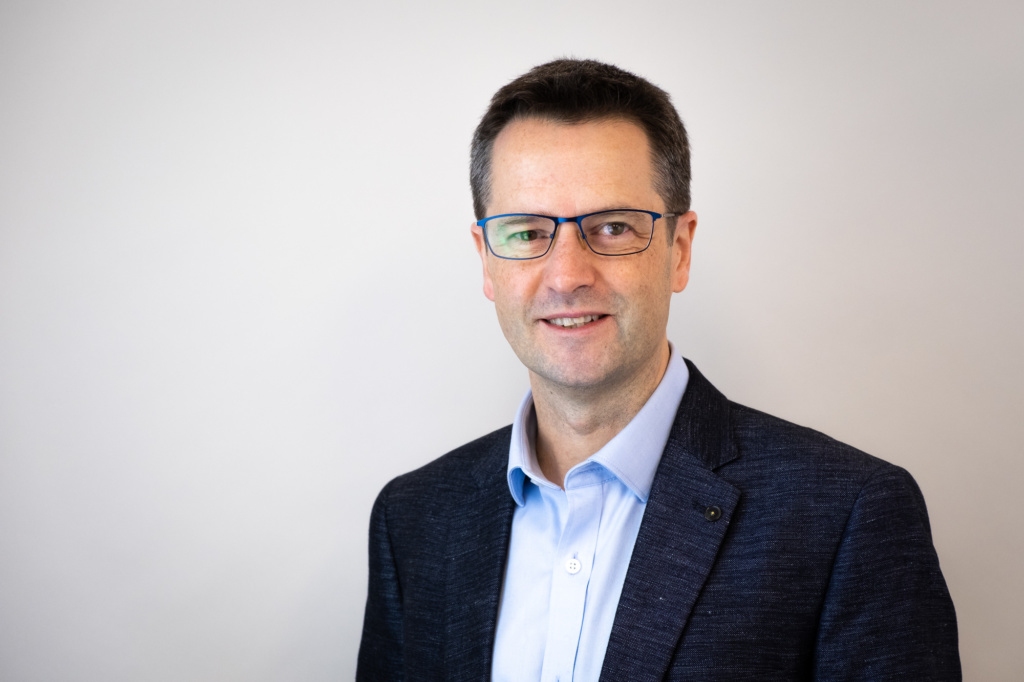
This success is reflected in Pinnacle’s ESG first impact report, a comprehensive document for financial year 2022, titled Transforming Communities, Changing Lives. It outlines the organisation’s achievements in areas like sustainability, community impact, nurturing its team and being a responsible business, drilling down into the progress it has made across the four pillars of a robust ESG framework.
Notable achievements include a 12% year-on-year reduction in tonnes of carbon emitted per employee (in its Protect our Planet pillar) and a 33% growth in FTE employee numbers (as part of its People and Culture initiative).
While Paul and his team produced an ‘ESG Year End Review’ for 2021, this document was geared towards establishing the business’s ESG framework and setting up working groups.
2022’s impact report “tells a story”, both about what has been achieved, and how Pinnacle hopes to build on its progress in future.
Paul commented: “It’s great when we produce a report like this because we can see that there are one or two areas where we haven’t necessarily gone forward, but we also haven’t gone backwards. On the whole, we’ve made some really good strides, and some great achievements over the last year.”
Planning ahead
Paul adds that the report is enabling Pinnacle, not just to reflect on its progress, but to plan ahead.
“One of the key drivers is about being able to plan strategically for the future, and without a report like this it’s difficult to do that,” he explains. “Our board has fully embraced it, and is ensuring that all future decisions are based on both the targets we’ve set ourselves, and the results of the report.”
The document has also been well received by clients, strengthening their confidence in Pinnacle and its approach.
Paul comments: “Those that have had the opportunity to read it already have fed back with great positivity, which is obviously quite rewarding – but it also shows that they’re very happy with who they’ve partnered with to deliver their services. We don’t just say that we do these things; it proves that we do it for all clients, not just certain clients.”

Marketing tool
Indeed, while not its primary purpose, the report has already proved to be a valuable marketing tool, and Mr de Kock is quick to acknowledge the commercial significance of ESG.
He says: “ESG has become a huge part of all of our bid submissions. Just three years ago, it might have attracted maybe 5 or 10% weighting in terms of the evaluation and the scoring. We're seeing this is now between 20 and 25%, especially with central and local government. That’s because the pressure is on government to ensure that we’re all doing our part, particularly when it comes to achieving net zero targets and good corporate governance.”
Paul suggests that, without strong evidence and an impact report, it is difficult to substantiate the ESG claims upon which bids often rely.

Data is key
Key to producing such a report, he adds, is good quality data. With this in mind, Pinnacle established its own data analytics team around four years ago – a move that has proved transformative.
“The team has grown, and we’ve been able to gather an immense amount of data across all spheres of our business,” Mr de Kock says. “We use Microsoft Power BI (a specialist software product) to gather, analyse and present this data, and are at a point now where we are comfortable enough to produce statistics, because we’ve got four years of history – not on all data, but we’re continually building on this.
“It ensures that we can produce reports substantiated with good data capturing and analytics.”
Paul explains that this data-gathering drive began with Pinnacle’s vehicle fleet.
“That was the first major project for our data analytics team,” he recalls. “Making sure that our whole fleet had telematics. And once we really started to see the power of the Power BI tool and the data, we rolled that out across the FM business.”
Pinnacle uses a second tool, Job Watch, to manage its soft FM services and produce daily workflows. This information is fed straight into Power BI, producing valuable insights.
Paul adds: “We have an ESG dashboard as well, where we’re capturing our carbon footprint and all our ESG initiatives. We’re capturing the amount of time and money spent on the initiatives we’ve introduced across the group.
“We’ve got dashboards for everything – mobile phone usage, the distance people travel every day. It’s great to have that information at our fingertips, and now we’ve got enough data, it’s helping us to think strategically about where we need to be going forwards.”
While generating data is relatively easy, interpreting it presents more of a challenge. Establishing its own data analytics team has enabled Pinnacle to overcome this particular hurdle.
“It has transformed the way we operate and the way we can interrogate data,” Mr de Kock comments. “And as I said, we’re continuously rolling this out, especially on the FM side of the business, because there’s just so much data you can gather – as long as you’ve got the tech in place.”
This data serves a dual purpose, enabling Pinnacle to better support its FM clients.
Paul adds: “It’s about pre-empting asset failure – being proactive about how we maintain the buildings we look after, the client assets. Without data, we can’t do that.”
The 'G' in ESG
Security is key, and he readily acknowledges the importance of processing this data safely and efficiently.
“We need to have the right ESG elements in place, especially when you look at the ‘G’ in terms of governance,” he explains. “Data privacy and data protection are key, and we made sure that we became Cyber Essentials Plus-accredited before going down this road. It’s the highest data privacy accreditation you can get.

“Now that we’ve got that in place, our clients know their data is secure. You can’t afford for anything to go wrong; it just takes one mistake, and significant data is out there, leading to fines and lost business.
“That’s why having those processes and principles in place under each of the four pillars is absolutely critical. And although a lot of companies don’t place enough emphasis on governance, for us it’s one of the most important elements, because of the impact it could have on any business.”
Neither, Paul adds, should businesses underestimate the complexity of ESG, which is more than just an extension of CSR.
“That was exactly my thought at the beginning, before I got involved and entrenched in it,” he admits. “I’ve headed up ESG since 2021, and I learnt very quickly that it is absolutely way beyond what CSR was and is.
“And it’s not only for us – it’s for our clients, our auditors. Even two years ago, they weren’t asking questions about ESG, and now the queries I get are incredibly detailed. It’s definitely taking a much higher priority in all spheres of business.”
Paul believes that, for smaller companies without adequate resource, implementing ESG measures is a “minefield.”
He comments: “You could almost say that CSR is a bit of a tick box exercise, but with ESG, if you don't have the right processes and principles in place, it’s not something you can blag.
“You need to be very sure of what you’re doing and have dedicated immense time and resource to getting it right for your organisation, which I believe is what Pinnacle has done.”
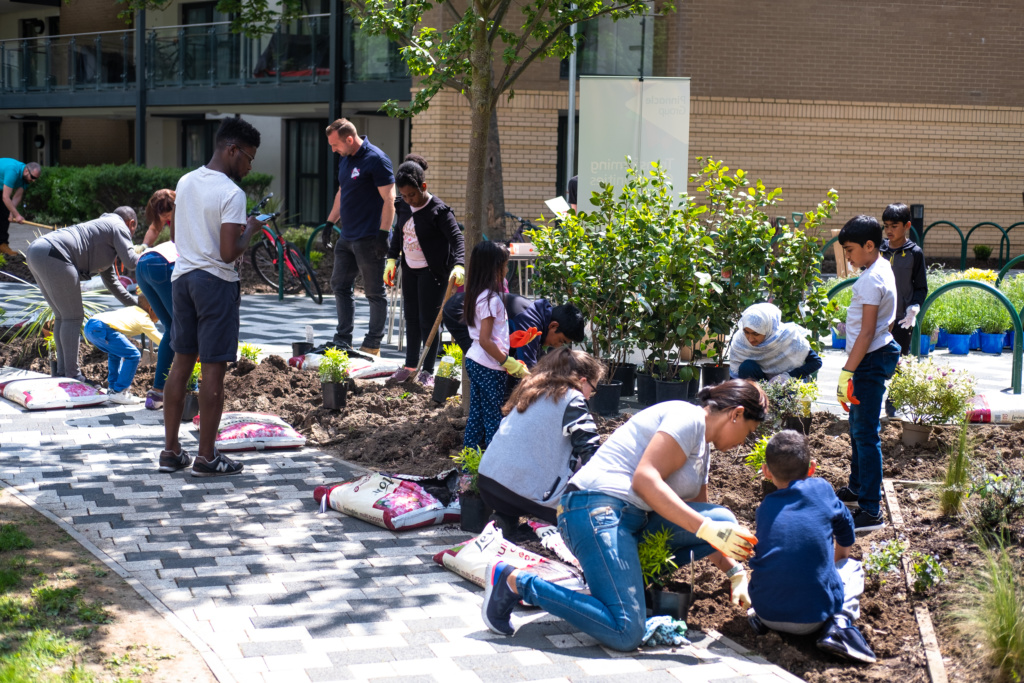
Solid foundations
Having embarked on its own ESG journey just two years ago, Pinnacle still has a “long way to go.” Nevertheless, it is already enjoying the fruits of its labours, as evidenced by the flagship impact report.
“There’s a lot of work still to do, but we’ve got the framework, and the rest of the journey will hopefully be relatively easy by comparison,” Mr de Kock says.
This early success would not have been possible without the support of Pinnacle’s senior leadership team.
He adds: “Our CEO and CFO have both had immense input. When we first started, they were fully involved in the quarterly ESG working group sessions, just to get it off the ground and agree on targets, roles and responsibilities.
“They’ve now taken a step back, but I still update them on everything ESG-related on a monthly basis, to ensure they’re up to speed with what we’re doing and how we’re doing it.”
This support means that ESG is now “business as usual”, which Paul believes “sends a strong message to everyone.”
Indeed, he and his team have secured buy-in from employees across the business, encouraging them to read the report and engage with Pinnacle’s ESG efforts via a dedicated intranet page.
“To ensure that our workforce understands the impact report and embeds ESG into their daily activities and the operational side of the business, we are in the process of identifying ESG champions,” Mr de Kock adds. “It was something we started about six months ago, slowly at first to ensure the process worked and we got the right level of buy-in.
“We’ve trialled it on a few contracts, and will be rolling it out across the wider group. We’ve got good evidence that proves how well it works, and the buy-in from clients has also been positive.”
These champions will help Pinnacle’s workforce to understand its ESG goals, as well as supporting clients without their own people or processes in place. While Mr de Kock and his team initially considered rewarding individuals for their efforts, they have found that “doing the right thing” is incentive enough.
“There’s the opportunity for recognition through our Pinnacle Awards, but the response has generally been ‘this is something I want to get involved with because I believe in it’,” he says.
Key challenges
Despite the positive response from employees and clients alike, creating Pinnacle’s first ESG impact report was not without challenges.
Paul adds: “Producing a report like this is never easy, because so many people need to be involved in reviewing and analysing the statistics. We also need to ensure there’s a story to tell – we don’t want to just produce a report that isn’t substantiated by good examples and working practices.

“So it was very much a collaborative effort, and it took some time to get the bones in place, as well as really identifying the message we wanted to convey.”
Guaranteeing that the report contained the right balance of information, statistics and evidence was key, as was ensuring that it was a “worthwhile read.”
“Our marketing team worked for many hours to get the presentation right, ensuring that it reads easily and flows nicely,” he remembers.
The result was a report that, despite taking longer to compile than anticipated, is an “interesting read for anyone who picks it up”.
With these foundations in place, Paul expects the production of Pinnacle’s second impact report to be quicker and easier.
“But we will need to keep it fresh and relevant,” he adds. “We don’t want to just update a few words and statistics every year; the images need to be different, the statistics need to be new, and the stories too.”

Room for improvement
According to Paul, future reports must highlight, not just Pinnacle’s achievements, but the areas in which progress is required.
“If we’ve failed on something we committed to the year before, we need to state that as well,” he says. “We need to be open about what we’re doing, and hopefully if we do fail to achieve something, there will be a very good reason for it.
“We’re a growing business, and things change – what we say today might not be relevant tomorrow. But as long as we explain it, there’s no reason to hide any of that.”
Some developments – the energy crisis, for example – are impossible to predict. In these instances, Paul adds, it’s about saying “nobody could change that, but this is the effect it had, and here’s what we learned.”
Indeed, reacting quickly to change is a priority for Pinnacle, which was a “very different organisation” when Paul joined in 2005. He believes that this ability to adapt - underpinned by the right processes and board support – has been key to its success.
Core values
While adaptability has helped Pinnacle to achieve sustainable growth, five core values (respect, involve, trust, challenge and deliver excellence) define its culture.
“As a minimum, we discuss these values with employees on a quarterly basis,” says Mr de Kock. “We have a lot of information available, and regular communications that go out every month as well, where we remind people of our values, our ESG pillars, and how we all need to play our part in delivering them.”
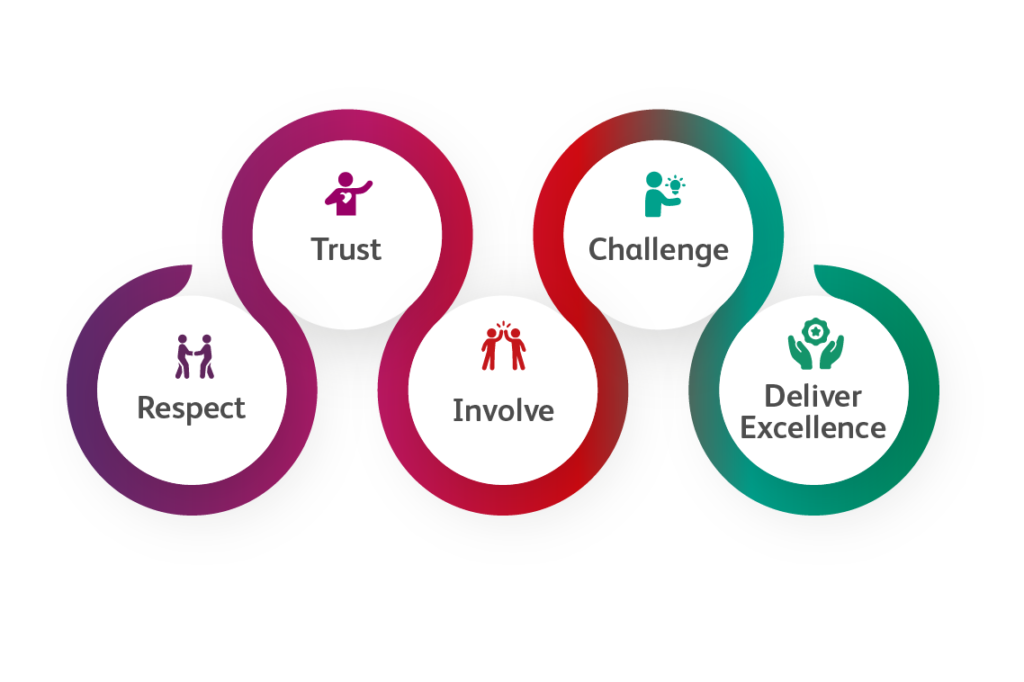
Paul explains that the business is often expected to define its culture in bid proposals, particularly for central and local government.
“They want to know how the organisation is run,” he comments. “Things like how we embody staff collaboration, how we ensure that employees are well looked after and happy in their work; Our People and Culture is another of our key ESG pillars.”
Increasingly, he adds, clients are looking to partner with service providers that share their values. This is also true of Pinnacle, which recently purchased a new FM business, AM Services Group, on the strength of its culture.
“They were very similar to our own values,” he says. “It was evidenced in their workforce, who embed those values in the way they work and deliver services. And we also want to partner with clients and organisations that share our values, or at least have similar values to ours.”
Significant opportunities
Paul adds that, after several years of growth, Pinnacle is now “on the cusp” of some significant opportunities – including larger contracts and central government framework agreements.
“We’re bidding on a number of opportunities with central government in various sectors, some of which we haven’t necessarily operated in ourselves before,” he comments. “But we have the experience to be able to operate in those fields.”
With bigger contracts comes further growth – and, inevitably, more carbon. Over the last two years, Pinnacle’s workforce has grown from 2,200 to just short of 4000.
“That means our carbon footprint is growing as well,” says Mr de Kock. “But what’s great about the report is that, although we’ve grown so much, our carbon footprint is still coming down on a per-million pounds of turnover level, and also on a per-employee basis.
“That’s why you need all these different metrics – to be able to show that we are still heading in the right direction. And that yes, carbon did go up, but there are very valid reasons why.”
Indeed, while new projects, new acquisitions and an influx of new employees led to increased emissions, Paul explains that Pinnacle’s carbon footprint had begun to decrease by the end of the financial year. Now, the business is striving to achieve net zero direct emissions in 2025.
Electric fleet
While Paul admits that it “still has a long way to go”, the 2022 impact report outlines several projects developed to support this goal. Among them is the electrification of Pinnacle’s growing vehicle fleet – around 85% of which belongs to the FM side of the company.
Supply chain issues have hampered these efforts to electrify, while ensuring that each of Pinnacle’s depots is fitted with the correct charging infrastructure poses a unique challenge. Nevertheless, it has made good progress, and is currently awaiting the delivery of 120 electric vehicles.
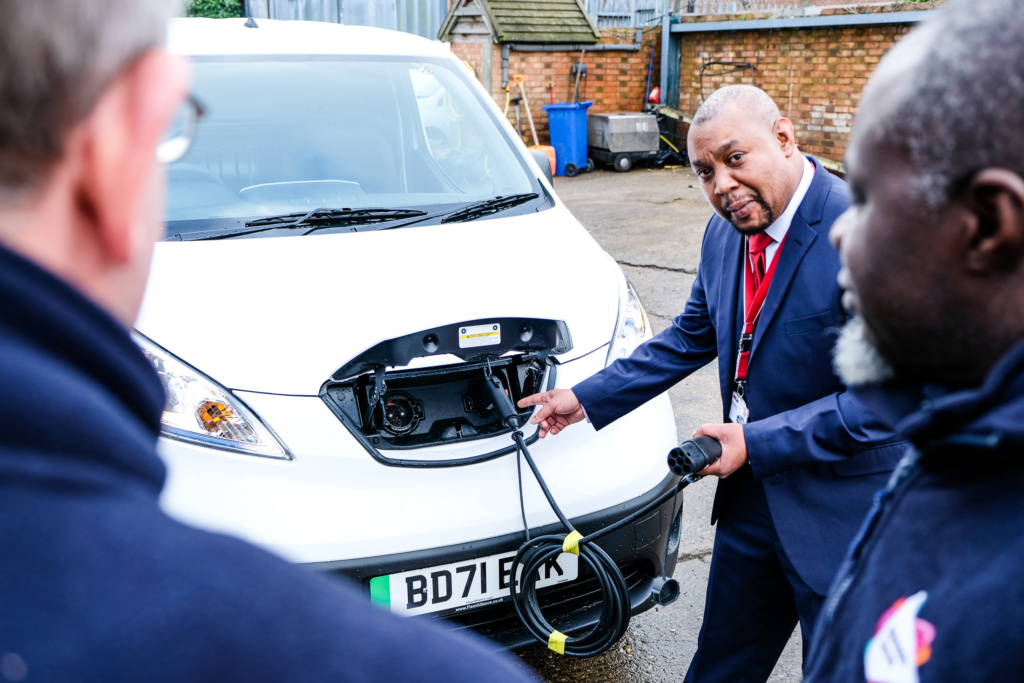
“Because these are large orders, we were able to go directly to the manufacturer rather than working through a middleman,” Paul says. “And we’re also bringing our fleet management in-house. We've recently brought on a fleet manager who can help us with this whole transition, and the installation of EV charge points.
“They will ensure that we've got a fleet that is fit for purpose for our organisation and has the right accreditations, as well - because again, we're seeing a lot of requirements now from clients for vehicle fleet accreditations.”
By bolstering its in-house capabilities, Pinnacle hopes to remain agile, adaptable, and in control of “things at a micro level.”
Ultimately, Paul is optimistic about Pinnacle’s ESG strategy, and hugely proud of the business’s first impact report.
“The report itself is very positive, in that we have been able to produce it, and back it up with really good evidence and statistics,” he concludes. “But the key to this is having access to good data; without good data, we cannot produce reports like this, and we cannot ensure that we are futureproofing our business.”
This interview was published in FM Director's March edition:
